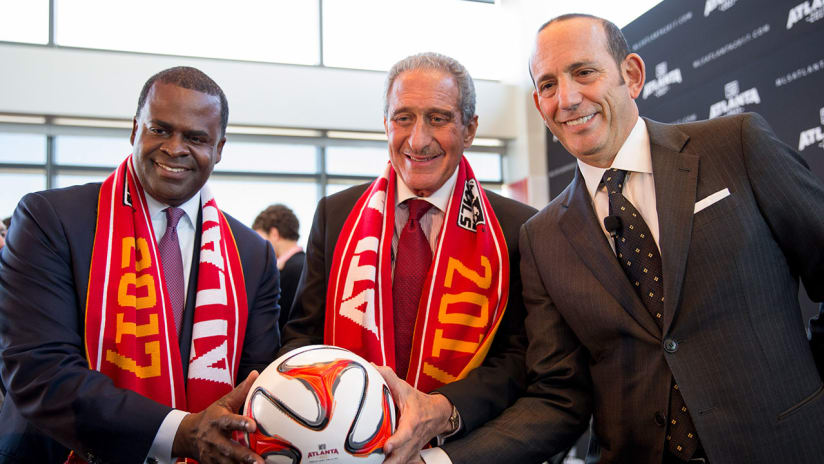When Orlando City made the jump to Major League Soccer, they became the 20th active franchise in a burgeoning league. Orlando made a splash in its first season in the league, averaging the second-highest attendance in the MLS.
The MLS doesn’t see its expansion stopping any time soon, with three clubs committed to joining the league in the next two seasons and one more awaiting a stadium deal. Commissioner Don Garber announced at the end of last year that the league is aiming to have 28 teams.
Atlanta United FC will come into the league in 2017, playing their home games in the brand new Mercedes-Benz Stadium. Minnesota United FC will join in either 2017 or 2018 and are currently building their own soccer-specific stadium. Los Angeles FC will join in 2018 as the 23rd active franchise. A group under the ownership of David Beckham is trying to start a franchise in Miami, but MLS approval hinges on securing a soccer-specific stadium downtown.
Future possible expansions cities include Detroit, Sacramento, St. Louis, and San Antonio, and rumors continue to swirl about many other cities as well.
The most complicated thing about expansion isn’t the owners or the stadiums or the cities, however. It’s the draft. When teams are added to the league, an expansion draft has to be held to add existing players to the rosters of the new teams.
In 2014, Orlando City and fellow newcomer New York City FC drafted a total of twenty players from the nineteen existing clubs. The same setup is likely to occur when Atlanta, Minnesota, LA, etc. enter the league. If you’re worried about your team’s star player being plucked from your city, it’s unlikely to occur because league expansion draft rules * provide provisions for protected players.
However, there have been reports that the MLS is considering eliminating the expansion draft over fears that future drafts could hamper existing teams’ success by depleting their rosters.
Any which way you look at it, MLS expansion is moving at full speed and, with the continued success the league is seeing, it is highly likely that we see several expansions over the next five to ten years.
* Note: These rules could very well change before the next expansion draft.






